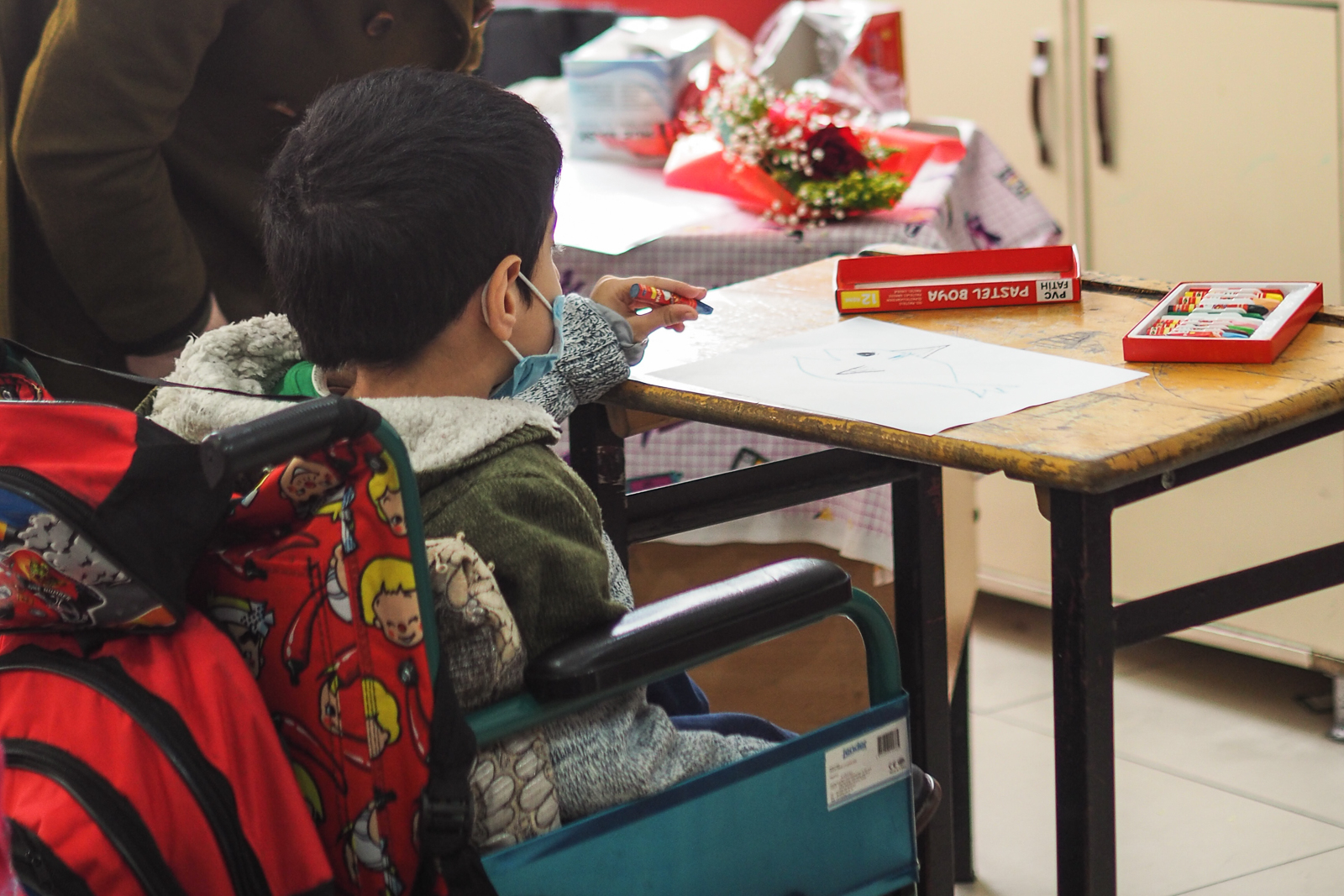
“We need to look first at people’s abilities, not their disabilities”
Children with disabilities, Global Youth Ambassadors
Ahead of the Global Disability Summit, a Global Youth Ambassador talks about her own struggles against discrimination and her mission to help others.
On July 24, the United Kingdom government will co-host its first Global Disability Summit with the International Disability Alliance and the government of Kenya. It will bring together more than 700 delegates from governments, donors, private sector organisations, charities and organisations of persons with disabilities.
In the run-up to the summit, we are publishing articles by Global Youth Ambassadors – a network of more than 900 young activists in over 80 countries.
I am Diksha Dinde, a 24-year-old student activist from India.
In December 2015, around one year before the parliament of India passed the Rights of Persons with Disabilities Bill 2016, Prime Minister Narendra Modi suggested the term “divyanga” (divine body) instead of “viklang” (handicapped) to describe individuals with a disability.
As a young activist fighting for disability rights during that time, I wondered how much difference that would make for me personally, as well as for the disabled people in this country.
The Prime Minister wanted a paradigm shift in the way the nation treats its disabled population, including me. But for the 2.6 million disabled people of India (2.21% of the population), it was a distant dream, because of the government’s inefficiency and social stigma.
Being born a girl, and also being born with disabilities, was a big challenge for my parents. Initially they were shocked – but later on they accepted my condition and encouraged me to get an education and become independent.
At the very start of my life I had been rejected by schools due to the lack of accessible infrastructure. Accessibility is still a crucial issue in India.

Private schools refused to consider me and I had to study in a government school up until 10th grade. There were many challenges here too as schools were not ready to take responsibility for my needs and my mother had to accompany me to school to assist me.
I have faced discrimination in most parts of my life. I couldn’t travel or move out of my house without someone accompanying me because of the lack of accessible vehicles and travelling options for disabled people.
Also, because of the dearth of wheelchairs in public places, I had to compromise on my independence of moving freely.
A prejudicial attitude is generally found towards people with disabilities and is largely prevalent in society. A general helpful nature or initiative is rarely found within the disabled community and people seem to have little sensitivity towards people with disabilities.
Now I advocate for disabled individuals rights, the welfare of underprivileged children, and the promotion of menstrual hygiene in the Pune district. I think that ignorance can cause suffering for future generations. For this matter, we need to fight against all odds.
My five years of activism was recognised on the international level when I was appointed as a Global Youth Ambassador for the A World At School movement, campaigning for global education.
A lot of work needs to be done on the ground to deliver social and economic justice in rural communities. I am working for what was promised to them by the constitution of India.
I am focused on providing education to children and improving health conditions for girls. Teenage girls and women should be empowered on issues around menstrual management, reproductive health rights and life skills, which they will use to reduce their vulnerabilities to sexual exploitation.
My experience of running the school for child beggars and underprivileged children in Pune made me realise how crucial accessible infrastructure is for disabled people and underprivileged children. I hope that my positive contribution spurs a wave of change in the welfare of communities.
I am a young adult who aspires to use my ideas to make a difference that will matter. I am working to achieve a position from where I can do meaningful and constructive work to make the lives of a larger number of children, young people, and women easier.
I have a dream to reach those who are ignored by society just because they do not fit in. Diksha Dinde
I would like to help them develop to the best of their abilities and to ensure that the opportunities they need are provided to them. I believe in action and learning and growing from experiences.
I have realised that none of these goals are easy to achieve but I am driven with enough grit and reason to continue to give my best to fulfil them. Keeping this view in mind I am aspiring to work with the government of India as an administrator.
I firmly believe that we have to look individuals’ abilities first, rather than their disabilities. One needs to work to change the mindset of the people. If the change is to be achieved, the delivery edge at grass-roots level has to be sharpened. Education is the only key to social change.
The government of India has started the Accessible India Campaign. I hope that it will give rise to more opportunities in every field for people with disabilities. Such people who are otherwise sidelined will have access to mainstream opportunities.
I have a dream to reach those who are ignored by society just because they do not fit in. Disability should not be considered as an obstacle to achieving success in life. I feel that there will be a day when people will adopt the values of inclusiveness, tolerance and acceptance.
More news

African youth rise up to demand early years spending target is met
